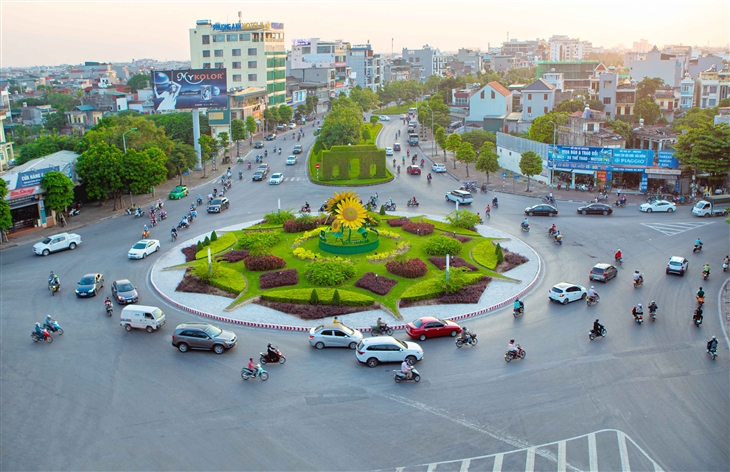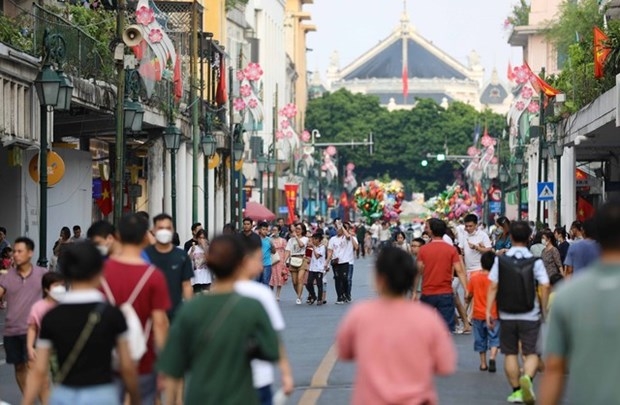VASEP’s recommendations to increase competitiveness for seafood industry
Friday, January 19,2024
AsemconnectVietnam - 8 recommendations have been sent by VASEP to the Prime Minister and ministries and branches to strengthen and increase the competitiveness of the fishery industry in 2024 and the following years.
Accordingly, the Vietnam Association of Seafood Exporters and Producers (VASEP) proposed to the Prime Minister, the Ministry of Industry and Trade, and the Ministry of Agriculture and Rural Development to actively support the US anti-subsidy investigation with Vietnam's shrimp industry, so that the shrimp industry can overcome the investigation stages in the near future.
It is forecasted that Vietnam's seafood exports will gradually recover in 2024 and become more positive in the second half of the year.
In addition, it is recommended that the Government, the Prime Minister and the Ministry of Industry and Trade pay attention and direct the consideration of abolishing quotas for Vietnamese shrimp exported to South Korea within the framework of the VKFTA Trade Agreement at the review period in 2024.
From the current situation of high aquaculture feed prices, which is the main factor making it difficult for Vietnam's aquaculture products to compete with other countries, VASEP recommends that the Government and the Prime Minister have policies on controlling food prices to stabilize raw material costs and increase competitiveness for Vietnamese seafood. Specifically, the import tax on soybean residue for fish food production needs to be reduced to 0% and electricity needs to be charged at 1 price for shrimp farming facilities.
Regarding the issue of farmed shrimp and pangasius breeds, in order to ensure quality production raw materials and reduce production costs, VASEP recommends that the Ministry of Agriculture and Rural Development summarize the implemented pangasius breed program; and have specific support policies for pangasius seed production units according to standards; strengthen the control of breed quality, ensuring no poor quality breeds or diseases to enter the market.
VASEP also proposed that the Prime Minister and the Ministry of Agriculture and Rural Development direct the review of current food safety control regulations of Vietnam and Europe; accordingly, appropriately adjust and amend regulations on food safety control of imported seafood raw materials for processing and export to the EU.
At the same time, it is recommended that the Ministry of Agriculture and Rural Development consider changing regulations in the current IUU traceability confirmation process to immediately issue a S/C exploitation certificate to the goods owner when the goods owner completed loading and unloading of raw materials from the ship under the supervision of port staff regarding type, volume, etc. at the fishing port.
In addition, VASEP also proposed that the Ministry of Agriculture and Rural Development consider adding quarantine regulations for aquatic products converted to domestic consumption that are imported for production or proceesing for export.
Finally, the Association recommends to the Prime Minister and the Ministry of Agriculture and Rural Development to pay attention and direct two important tasks, including establishing a raw material input data system, connecting from fishing ports to the central government and having a plan to build a seafood auction market, as this is the infrastructure that serves as a premise for sustainable fisheries and marine economic development.
According to VASEP, high inflation, reduced demand, large inventories, falling export prices and difficulties and inadequacies in domestic production and business cause seafood export results in 2023 to decrease by 17% compared to 2022, and reached only 9 billion USD.
In particular, the exports of the main products such as shrimp, pangasius, and tuna all reduced by 16 - 20%. The exports of other fish species decreased slightly by 7%, and crab exports also decreased by 4% while the exports of squid and octopus decreased by 20% and shellfish (clams, oysters, snails, etc.) decreased by 14%.
Regarding markets, in 2023, seafood exports to most markets decreased compared to 2022. The exports to the top 5 markets, including the United States, Japan, China - Hong Kong (China), EU and South Korea decreased from 11 - 28% compared to 2022.
It is forecasted that Vietnam's seafood exports will gradually recover in 2024 and become more positive in the second half of the year. With adaptation and adjustment to the market context, the industry's export turnover is forecast to recover to 9.5 billion USD - 10 billion USD in 2024. Of which, the shrimp industry is aiming for 4 billion USD in export turnover, while pangasius exports may reach about 1.9 billion USD, and the remaining seafood products are expected to earn about 3.6 - 3.8 billion USD.
CK
Source: VITIC/congthuong.vn
Vietnam's coffee export turnover in 2023 reached a record high level, worth 4.24 billion USD
Why tea exports reached their lowest level in the past 7 years?
More opportunities for Vietnam’s Tra fish in the US and EU markets
CPTPP market group reached Vietnam’s the second largest seafood export growth rate
Chili exports in 2023 reached 20 million USD, up 107%
DAILY: Vietnamese pepper prices rose by 500 VND on January 18
DAILY: Vietnamese coffee prices fell by 400 VND on January 18
Vietnam steel market update: High hope for recovery in 2024
Vietnam rice market update: Rice export soars to record high in 2023
Internal resources exploited to create economic breakthroughs in 2024
Vietnam’s shipping market forecast for 2024
DAILY: Vietnamese pepper prices rose by 500 VND on January 17
Export turnover to the US in 2023 reached more than 97 billion USD
DAILY: Vietnamese coffee prices rose by 1500 VND on January 17

Plan of Hai Duong province for a period of 2021 - 2030, ...
Organize space reasonably and harmoniously, focusing on connecting Hai Duong in common development space, actively contributing to the ...Plan of Hau Giang province in a period of 2021 - 2030, ...
Sustainable forestry development program in a period of ...
Supporting industry development program in Da Nang city in ...
Implementation plan of Scheme on promoting agricultural, ...

Hanoi harnesses “soft power” of culture in development
Since joining the UNESCO Creative Cities Network in the “Design” category in 2019, Hanoi has organised a multitude of activities relating ..."Happy Tet 2024" to open in Hanoi
Vietnamese literary works served up at Brussels restaurant



